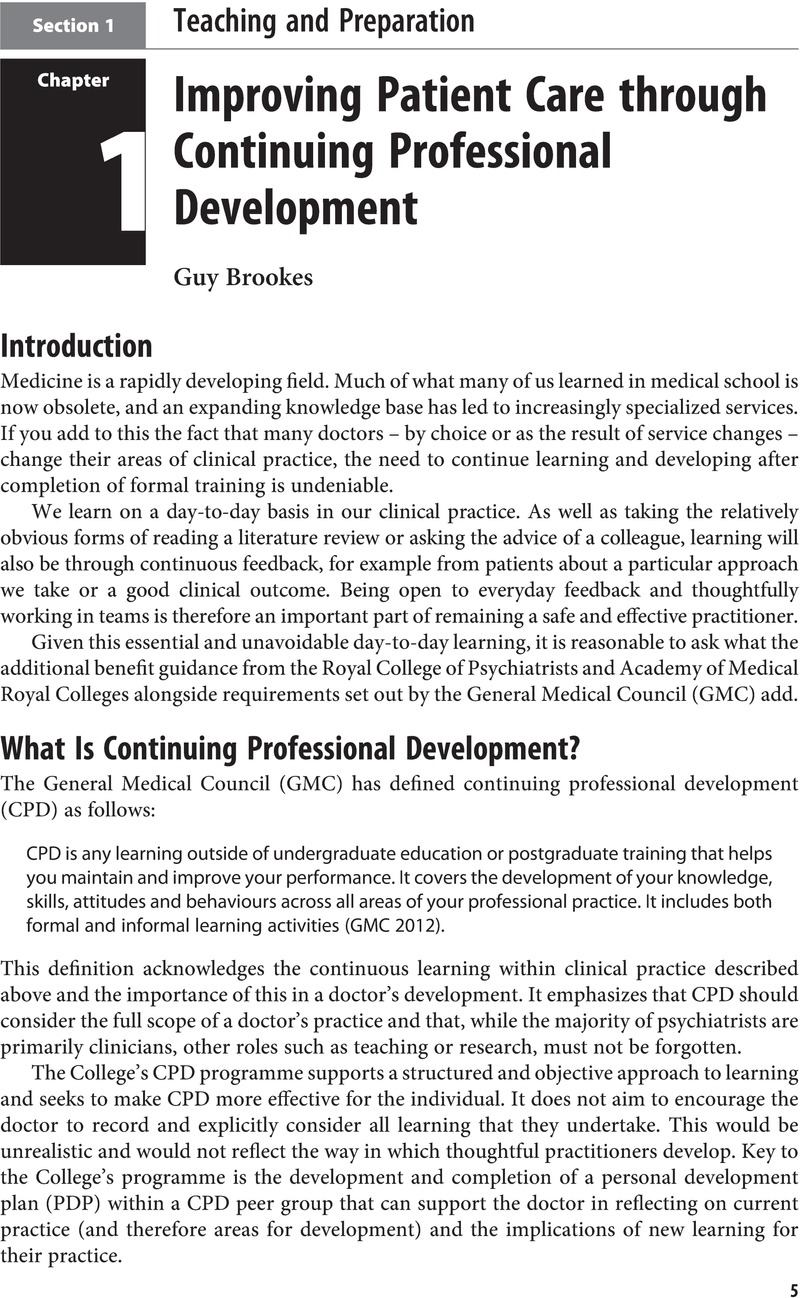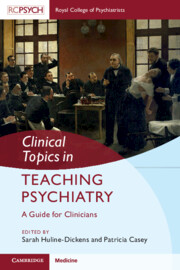Book contents
- Clinical Topics in Teaching Psychiatry
- Clinical Topics in Teaching Psychiatry
- Copyright page
- Dedication
- Contents
- Contributors
- A Note on the Cover
- Introduction
- Section 1 Teaching and Preparation
- Section 2 Teaching Methods
- Section 3 Feedback, Assessment and Supervision
- Section 4 Bridging the Gaps: Foundation Years and Interprofessional Education
- Section 5 Technologies Old and New
- Section 6 Supporting the Trainee in Difficulty
- Index
- References
Section 1 - Teaching and Preparation
Published online by Cambridge University Press: 24 November 2022
- Clinical Topics in Teaching Psychiatry
- Clinical Topics in Teaching Psychiatry
- Copyright page
- Dedication
- Contents
- Contributors
- A Note on the Cover
- Introduction
- Section 1 Teaching and Preparation
- Section 2 Teaching Methods
- Section 3 Feedback, Assessment and Supervision
- Section 4 Bridging the Gaps: Foundation Years and Interprofessional Education
- Section 5 Technologies Old and New
- Section 6 Supporting the Trainee in Difficulty
- Index
- References
Summary

- Type
- Chapter
- Information
- Clinical Topics in Teaching PsychiatryA Guide for Clinicians, pp. 5 - 62Publisher: Cambridge University PressPrint publication year: 2022



